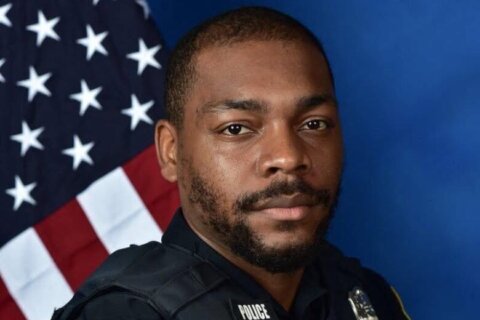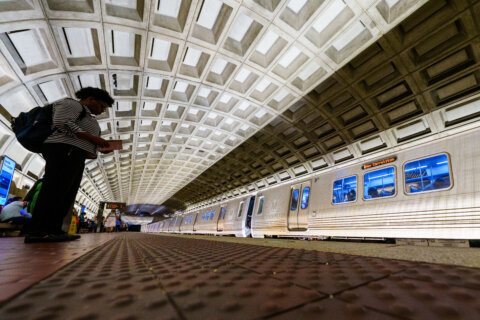A plan to bring students back into some D.C. public school classrooms is generating questions and skepticism among some city leaders, even as negotiations continue between the school system and teachers’ union.
D.C. Public Schools Chancellor Lewis Ferebee took questions from the D.C. Council during a Friday virtual hearing, where he acknowledged the difficulty some families are facing with at-home learning.
Ferebee said early indicators suggest some students in kindergarten through second grade are showing declines in reading readiness.
The current plan calls for some elementary school children to return to the classroom on Nov. 9th.
One class of 11 students in each grade would be taught in the classroom, while other students would be brought into what are called “CARE classrooms.”
There, students would receive virtual learning while being supervised inside a classroom, sometimes by middle and high school teachers.
“There are significant challenges from families as it relates to supervision and engagement with learning at home,” said Ferebee. “Some families have the network and capacity to be engaged with their student when learning at home. But not all of our families have that capability.”
Ferebee was asked by At-Large Councilman David Grosso about the differences between D.C.’s return to school plan and the one developed in New York City for 500,000 students who are back in classrooms.
Ferebee also stressed the upgrades in ventilation and HVAC systems will help clean the air better than previous systems did, though he was grilled about other safety precautions being taken for teachers who are worried about going back into potentially unsafe classrooms.
Teachers with preexisting health conditions, or who help take care of someone particularly susceptible to the disease, will be allowed to continue teaching at home.
Those brought back to the classroom will not get hazard pay. If a teacher tests positive but is otherwise still able to teach, they will be allowed to do so at home. Teachers who get sick and can’t teach at home will be granted COVID-19 sick leave that Ferebee characterized as “generous.”
He also promised to notify school communities of any positive tests inside their schools. But Ferebee was less detailed when asked about determining the threshold of an outbreak that required an entire school be shut down.
“That would be reviewed on a case-by-case basis,” said Ferebee. “The scope in which individuals test positive, the number of close contacts would also be considered, and then the impact on operations will also be considered.”
Council Chairman Phil Mendelson said he didn’t find that answer reassuring: “I’m struck by the fact that the Department of Health has developed different metrics for measuring. They’ve been using those mostly for whether we go from Phase 2 to Phase 3, or Phase 1 to Phase 2. And it’s a variety of metrics … and I’m just not hearing that with regard to the criteria for closing school.”
Ward 6 Councilman Charles Allen said the current situation was putting lots of families in a bind and the plans developed so far still aren’t satisfactory.
“I’ll be honest, I’m at a point where I don’t have faith in these plans for reopening,” said Allen. “Parents and teachers across the District are telling me they don’t have faith and they feel that their needs and concerns have not been taken into account.”
Allen also told Ferebee that a lack of communication and transparency has left principals in the city “blindsided” during the process, while teachers are “anxious” and parents are “confused.”
Allen said an approach he described as “one size fits all” is not appropriate or equitable, and he further characterized the plan as “insulting” to teachers.
“It is the least disruptive model for our schools,” Ferebee responded.
Negotiations with the teachers’ union about reopening plans continue and Ferebee said he was hopeful to have a deal reached by early next week.
- Sign up for WTOP alerts
- Latest coronavirus test results in DC, Maryland and Virginia
- Coronavirus FAQ: What you need to know
- Coronavirus resources: Get and give help in DC, Maryland and Virginia
- Fairfax County Public Schools to bring more students back to classrooms
- Catholic Charities: Urgent food donations needed at food banks
- Amid talk of reopening rollback, Montgomery Co.’s coronavirus numbers under scrutiny
Looking for more information? D.C., Maryland and Virginia are each releasing more data every day. Visit their official sites here: Virginia | Maryland | D.C.








